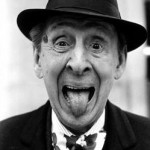
“The intuitive mind is a sacred gift and the rational mind is a faithful servant”. Albert Eistein
One day I was studying the danse macabre of Saint-Sans and listening to the recording of Wladimir Horowitz. When I was reading the music during my listening, I realized my expectation of the music was different as all the corporal strict notation in the score was very freely interpreted. I tried to play along and had difficulty to follow him. Then I put the music aside, closed my eyes and listened again and suddenly the piece started living. It was amazing, how fresh and energetic and alive it sounded! Every note was captivating and I could not stop listening. Then I stood up and tried to dance to the music and do some arm and hand movements and was fascinated how organic the music performance was. It seems like Horowitz released an internal flow out of the written dead and dry ink on the paper.
Italian Humanist of Middle Age Leon Battista Alberti (1407 – 1472) once said, “We shall borrow all our rules for our proportions from the musicians who are the greatest masters of this sort of numbers and from the music itself wherein the Nature shows herself most excellent and complete.” In the Middle Ages the liberal arts education consisted of Music, Arithmetic, Geometry and Astronomy, the so called Quadrivium. Surely, at first the educated person would learn to master a musical instrument due to the mathematical and proportional aspect of music. Even then, it was all very clear that actually playing music or even just hearing it would foster a creative moment – that would boost our instinctive facilities. At first, it sounds like a contradiction: Music has numbers, proportions, strict rules and they all need to be obeyed. Playing music is all about the intuition, inborn unexplainable facility to shape these numbers and harmonic proportions into tones. The magic moment of flow occurs when everything starts fitting it – your body movements, your state of mind, emotions and your personal something…
My personal experience was many times I had difficulties with some music pieces and would be searching for analytical ways to cope with them. I would be doing everything written by a composer but still the essence of the music would escape. Only a source of inspiration like reading a book, or walking in the forest, or dancing to the music would give me a key to my interpretation. New impulses would arrive when I allow myself enough room for improvisation in my interpretations. Maestro Horowitz once said that his idea of a most interesting recital would be to play several performances of Ballade nr. 1 of Frederik Chopin in one concert. So improvisation and intuition go hand in hand. Both are so important in life, and they are certainly a product of self-contemplation which is developed through artistic practices and music in particular.
There were several postulates that the ability to read music and play different musical instruments teaches pattern recognition allowing for faster conceptual mapping enhancing intuitive abilities. In other words, it strenghens our intuition. Kay Shelemay, Professor of music in Harvard says, “All humans come into the world with an innate capability for music. At a very early age, this capability is shaped by the music system of the culture in which a child is raised. That culture affects the way people hear sound.” However if it is not developed further, this ability stays under cover, only to be re-discovered later eventually through the conscious effort. One way to bring intuition back into your daily life is through short creativity breaks.
It would be interesting to hear your experiences. Does intuition help you and/or how do you make use of it? It would be great to hear your opinion. Please visit us at www.movingclassics.tv for more insights. Thank you for reading.